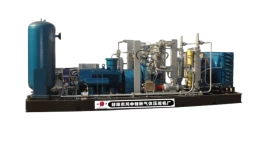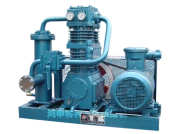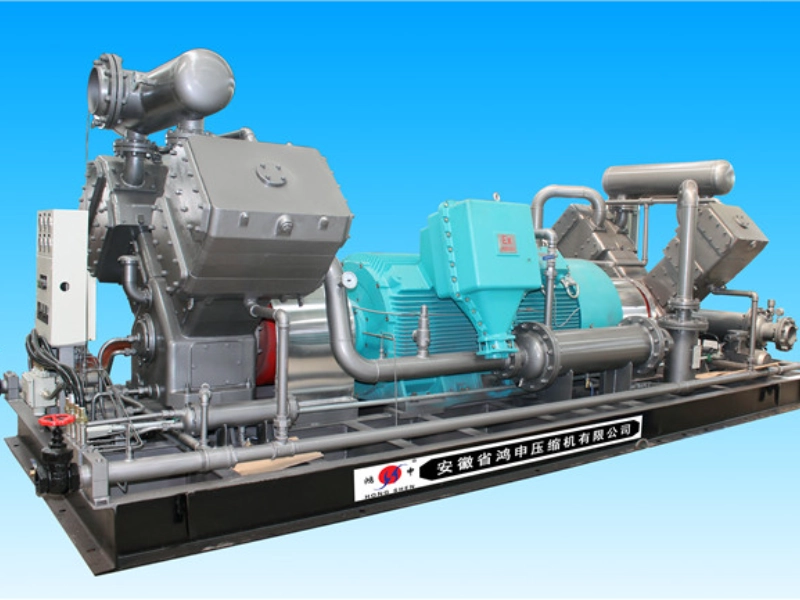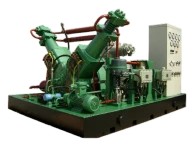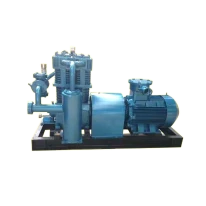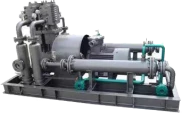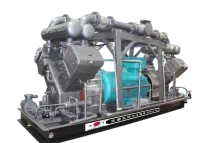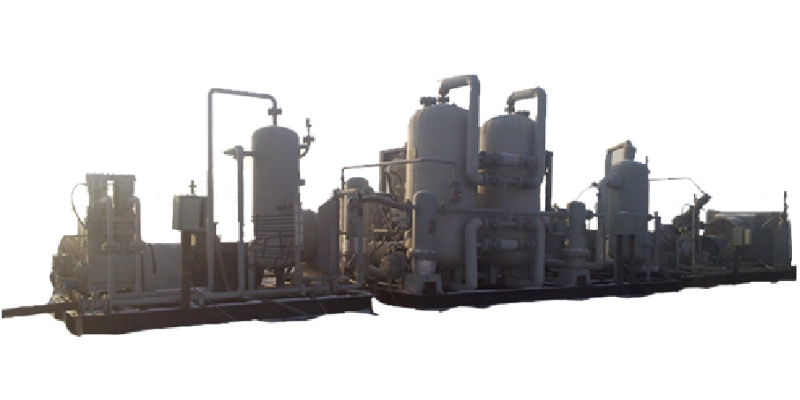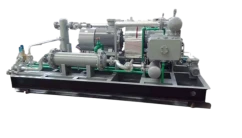High-pressure gas compressors are specially designed devices used to compress gas to a high-pressure state. Common types include piston, screw, and centrifugal compressors, each with its specific advantages and disadvantages. For example, piston compressors are suitable for low-flow high-pressure needs, while screw compressors are more appropriate for continuous high-flow operations.
High-pressure gas compressors working principle
The working principle of high-pressure gas compressors mainly relies on the increase in pressure caused by the reduction in volume of the gas during compression.
The specific process includes:
Intake Process: The compressor draws in gas through the intake valve, usually using a filter to ensure the gas is clean.
Compression Process: The gas is compressed within the compression chamber by mechanical devices such as pistons or screws, resulting in a decrease in volume and an increase in pressure.
Cooling Process: Due to the rise in gas temperature during compression, a cooling system is typically required to prevent overheating of the equipment.
Discharge Process: The compressed high-pressure gas is discharged through the outlet for subsequent use.
Applications in High-Pressure Gas Source Stations
High-pressure gas source stations are primarily used for the storage, distribution, and transportation of high-pressure gas.
The specific applications of high-pressure gas compressors in this context include:
Gas Transportation: High-pressure gas compressors can compress gas to the required high-pressure levels, facilitating long-distance transportation, especially playing a crucial role in the transportation of natural gas and hydrogen.
Gas Storage: In high-pressure gas source stations, compressors are used to fill gas storage tanks, ensuring rapid supply during peak demand periods. The design of high-pressure gas storage systems effectively enhances safety and reliability.
Boosting Services: In certain production processes, a stable supply of gas at a specific pressure is required. Compressors provide the necessary boosting services to meet the operational needs of the equipment.
Energy Efficiency and Environmental Protection: Modern high-pressure gas compressors focus on energy-saving designs, reducing energy consumption and emissions through optimized airflow paths and material selection, aligning with sustainable development goals.
Compatibility with Various Gases: High-pressure gas compressors are designed flexibly to handle various gases, including air, nitrogen, oxygen, and other industrial gases, adapting to different industrial needs.
High-pressure gas compressors play an irreplaceable role in high-pressure gas source stations, with their advanced technology and design continuously driving industry development. As industrial demand for high-pressure gas increases, the performance and application of compressors will become increasingly important. Through efficient and reliable compression solutions, enterprises can enhance production efficiency while achieving both economic and environmental goals.

